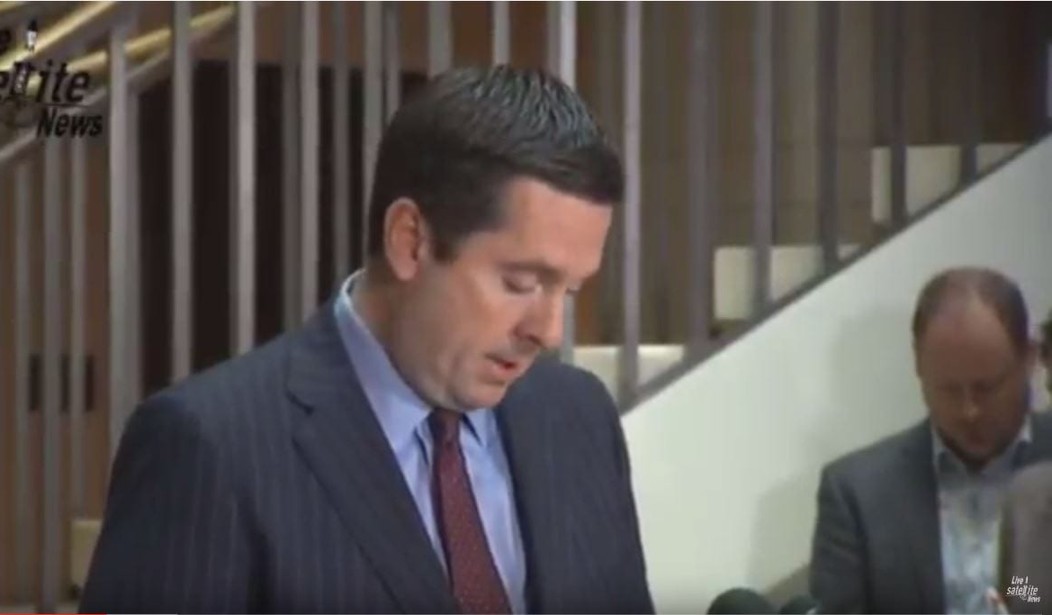Will Rogers once said: “It isn’t what we don’t know that gives us trouble, it’s what we know that ain’t so.” If you ask someone who is waving around #TheMemo why it makes them so upset, they’re likely to tell you that the FBI used unverified political oppo research to target someone working for the Trump campaign. Take, for example, this passage from an Andrew C. McCarthy piece yesterday:
What we have long suspected (see, e.g., here and here) has now been confirmed: The Obama Justice Department and the FBI used the unverified Steele dossier to convince a federal court to issue a warrant authorizing surveillance of a Trump campaign adviser.
There’s just one problem with that formulation: it’s not true. That sentence is missing a very important word: “former.”
The FBI’s FISA application discussed in #TheMemo did not target a “Trump campaign adviser.” Rather, the FISA application asked permission to surveil Carter Page, former Trump campaign adviser. And, by the way, Page was known to law enforcement as early as 2013, long before he ever joined the Trump campaign.
Susan Wright mentioned this fact this morning, but the misconception is so widespread and so central that I think it deserves its own post.
Remember: the yuuuuge and giant revelations in #TheMemo all centered around the FISA applications to surveil Carter Page. But Carter Page stepped down as a Trump foreign policy adviser on September 26, 2016. According to #TheMemo, the first FISA application targeting Page was obtained almost a month later, on October 21, 2016: “On October 21, 2016, DOJ and FBI sought and received a FISA probable cause order (not under Title VII) authorizing electronic surveillance on Carter Page from the FISC.”
The fact that Page was not a member of the Trump campaign when the initial FISA application was granted is not some new revelation. It has been known for months. For example, the New York Times reported in April 2017:
After Mr. Page, 45 — a Navy veteran and businessman who had lived in Moscow for three years — stepped down from the Trump campaign in September, the F.B.I. obtained a warrant from the Foreign Intelligence Surveillance Court allowing the authorities to monitor his communications on the suspicion that he was a Russian agent.
Yet that does not stop the world from repeating the error McCarthy makes in the quote above: that the application to surveil Carter Page sought “a warrant authorizing surveillance of a Trump campaign adviser.” I see this repeated all over the Internet, in very prominent places.
For example, Fox News’s initial story on #TheMemo yesterday got a lot of attention, because Catherine Herridge appeared to have an advance copy of #TheMemo. Her article (with Alex Pappas and Brooke Singman) was titled House memo states disputed dossier was key to FBI’s FISA warrant to surveil members of Team Trump and opened with this misstatement:
A much-hyped memo that shows alleged government surveillance abuse during the 2016 campaign has been released to the public and cites testimony from a high-ranking government official who says the FBI and DOJ would not have sought surveillance warrants to spy on a member of the Trump team without the infamous, Democrat-funded anti-Trump dossier.
Similarly, Victor Davis Hanson says:
If all this is not a scandal — then the following protocols are now considered permissible in American electoral practice and constitutional jurisprudence: An incumbent administration can freely use the FBI and the DOJ to favor one side in a presidential election, by buying its opposition research against the other candidate, using its own prestige to authenticate such a third-party oppositional dossier, and then using it to obtain court-ordered wiretaps on American citizens employed by a candidate’s campaign — and do so by deliberately misleading the court about the origins and authors of the dossier that was used to obtain the warrants.
If you look, you can find dozens more examples along the same lines. It seems that everybody and their dog believes that the FBI was targeting a current Trump campaign adviser in Carter Page.
This false conclusion is encouraged by the characteristically slippery language of #TheMemo itself. Here’s the relevant passage:

Very clever. “On October 21, 2016, DOJ and FBI sought and received a FISA probable cause order (not under Title VII) authorizing electronic surveillance on Carter Page from the FISC. Page is a U.S. citizen who served as a volunteer advisor to the Trump campaign.” These facts are all true. It’s not their fault if you drew the mistaken inference that Page was a Trump campaign advisor at the time the order was sought! All they did was state true facts!
Look: nothing I say in this post, or any post about #TheMemo, is going to change anybody’s mind, on either side. People’s minds are too hardened by now. But at the very least, could we get our news organizations and pundits to stop running around repeating false statements of fact? I don’t think it’s asking too much to suggest that we let people make up their minds based on actual facts and not oft-repeated falsehoods.














Join the conversation as a VIP Member